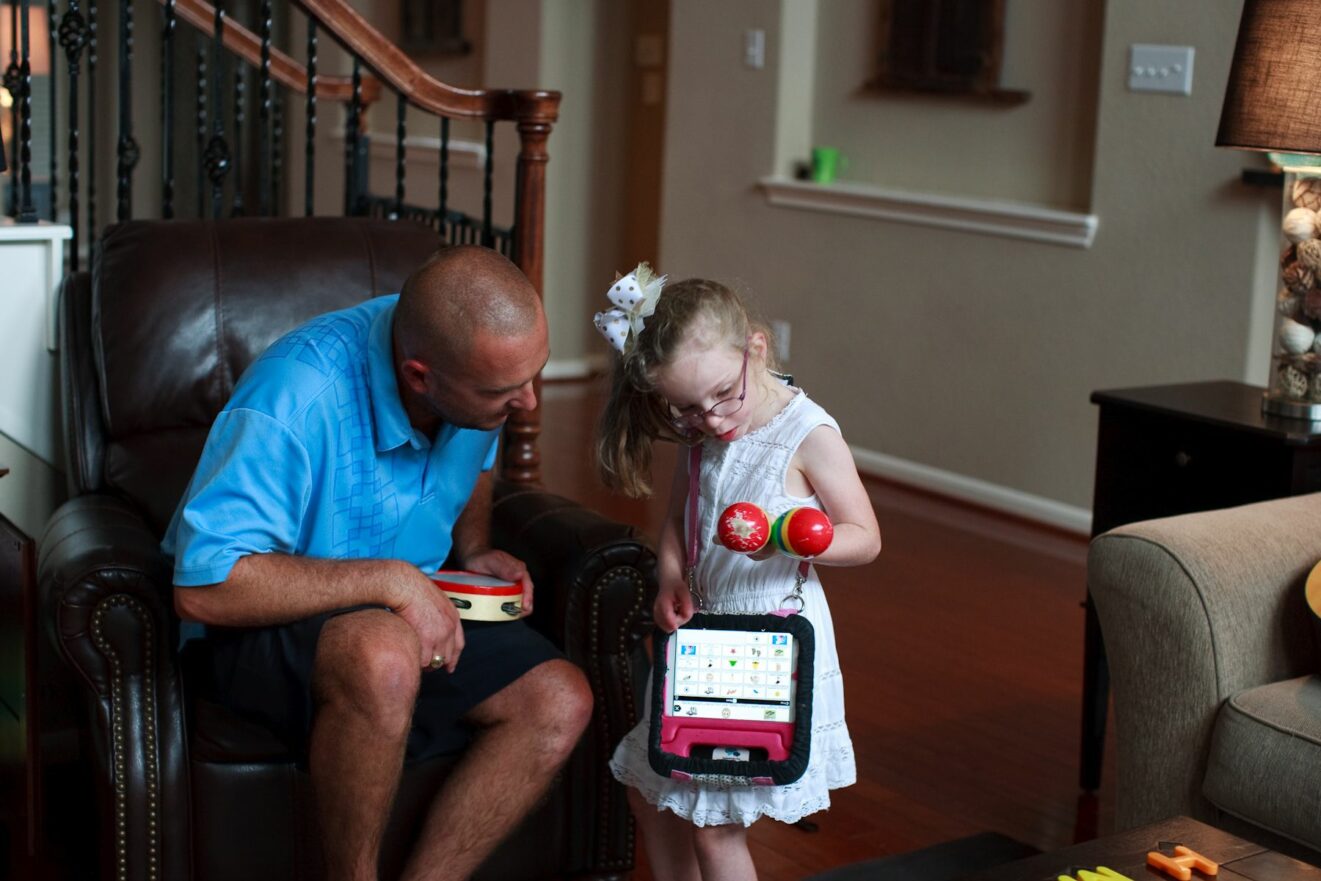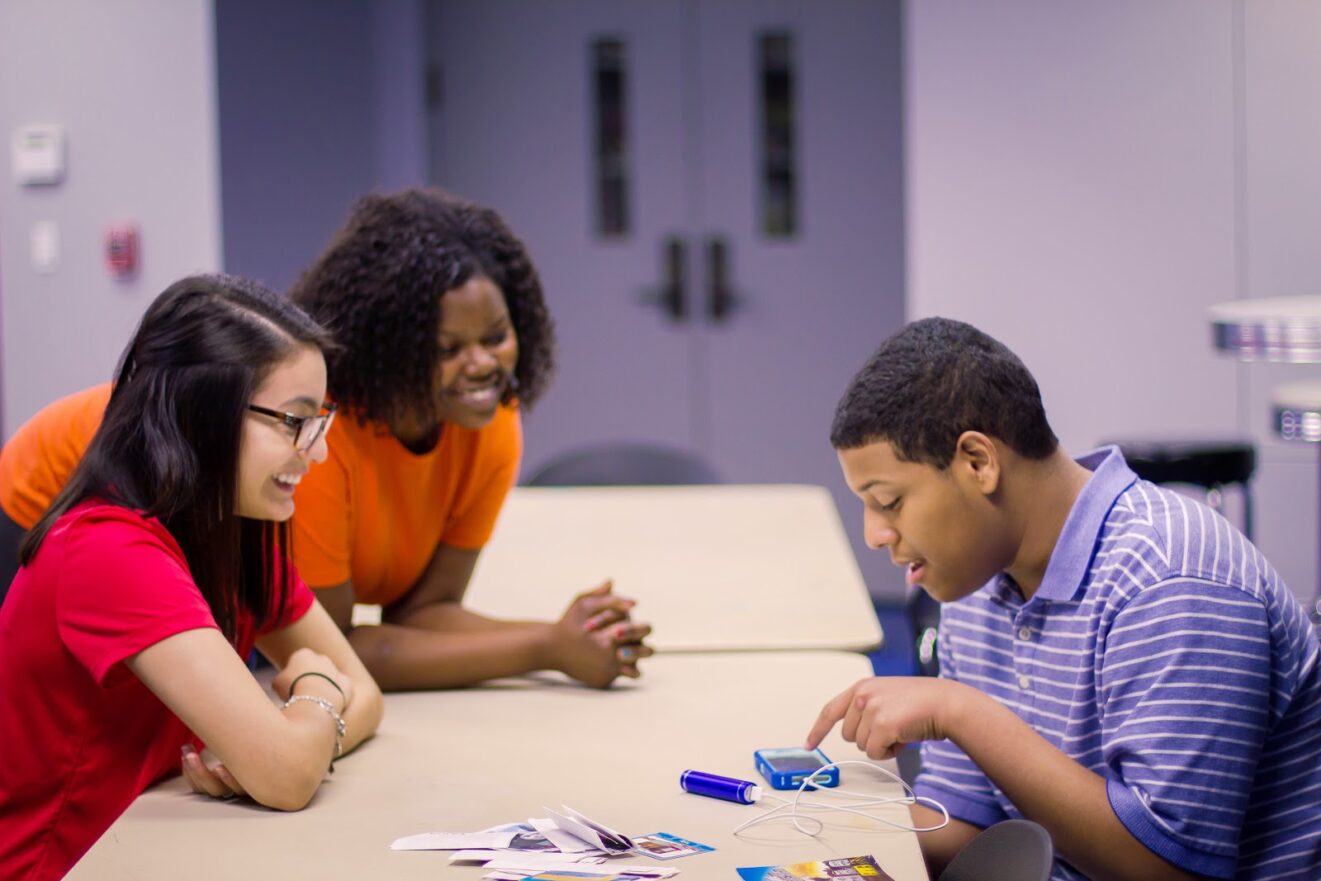February is Recreational Therapy Awareness Month. Never heard of recreational therapy? Or assumed it was just another name for physical therapy? Read on!
Do you believe having fun is good for everybody?
If we’re talking about “everybody under a certain age,” most people would agree with Alejandra Gonzalez, BridgingApps Digital Navigator: “Learning through play is important for children of all abilities. It’s the very first way they explore the world and learn such skills as sharing, differentiating, and cause–effect. It’s much easier (and more mutually rewarding) to teach a client what ‘pushing’ is if they’re playing with toy cars or being pushed on a swing.”
Many adults, though, feel guilty about taking time to just enjoy themselves—because they’ve forgotten that “play” is not synonymous with “goofing off” or “wasting time.” Recreation doesn’t lose its practical value after we grow up. It’s still an excellent way of learning, recharging, even healing.
“Healing through play” is the concept behind “recreational therapy.” In the rest of this article, McKenzie Garland, certified Recreational Therapist and ESGH team member, shares her experience.

What Is Recreational Therapy?
Though they may sound similar, recreational therapy is not the same as physical therapy. Physical therapy is the use of exercises and physical activity to maintain and/or restore muscle strength and movement, typically in a controlled setting such as a hospital or other medical facility. And, as the name indicates, it focuses only on the physical aspects of recovery and health maintenance.
Recreational therapy focuses on overall well-being, and treats mental and emotional challenges as well as the physical. The purpose is using someone’s personal interests—activities they truly enjoy—to improve their physical, social, cognitive, emotional, and spiritual functioning.
Recreational therapeutic activities are also typically taken out in the community, rather than having clients come to us. This “community integration” focus is doubly helpful in assisting people with disabilities, who often need to improve their social-interaction skills so they can integrate into society and function independent of supervision.
Where Is It Used?
I’m active with a recreational activities program at recenter Houston, a residential facility for people struggling with substance abuse and misuse. These activities have had a highly positive impact on this population: we find sober recreational activities for clients, get them engaged, and provide them with new outlets to express their emotions and feelings.
In my experience, recreational therapy is most used with people who have disabilities. Many outside the disability community don’t even know about it; and that’s the unfortunate part, because the recreational approach is helpful to anyone’s overall well-being. It can assist with any goal: developing physical and social capabilities; learning to use assistive technology; finding new opportunities in the community; practicing new ways to share emotions.

What Are the Other Benefits?
Clients enjoy recreational therapy because it’s organized around their interests. When you work on a goal while simultaneously immersed in favorite activities, it doesn’t feel so much like “work.”
That goes for the therapist too. I love meeting new people, watching my clients progress, seeing them go on to succeed independently. Assisting someone in their first conversation with a peer, helping them find a new, sober, recreational activity they truly enjoy—I love helping people find joy in their lives.
McKenzie’s Favorite Client Experiences
After attending a few recreational activity sessions at recenter, Graham began asking more and more questions about recreational therapy itself. He showed up routinely at weekly sessions, engaging in all activities and always bringing new questions. Eventually, he changed his own academic major from physical therapy to recreational therapy: he has found his passion and purpose, ready to share the benefits of recreational therapy with other Veterans and people recovering from substance abuse.
Another client, who had autism, I worked with one-on-one at Easter Seals Greater Houston. When we began, the client showed total lack of attention and social skills, and had to be frequently redirected and prompted. After we’d worked with him for a year, he could initiate conversation with minimal prompting, and continue in activities for up to 20 minutes on his own initiative. His mother said there were wonderful improvements at home as well. Simple things like being able to go out to dinner together made a great impact in this family’s life, and they are forever grateful—a perfect example of how rewarding recreational activities can be for clients and therapists alike.

